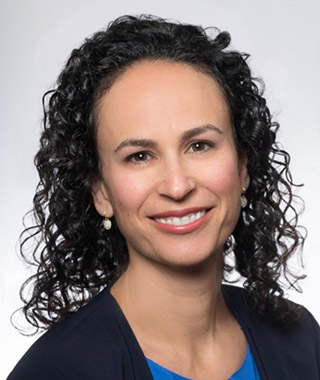5 Benefits of Breastfeeding for You and Your Baby
A breastfeeding expert and pediatrician explains the health benefits of breastfeeding, both for babies and nursing parents.

While newborn babies spend a lot of time eating and sleeping, most parents know that those basic needs are not always as simple as they sound. Breastfeeding, for one, can be challenging to start and maintain due to many factors. But as difficult as the journey may be, Dr. Melissa Glassman, a breastfeeding medicine specialist and pediatrician at the NewYork-Presbyterian Ambulatory Care Network and ColumbiaDoctors, often encourages new parents by discussing all the benefits of breastfeeding.
Breastfeeding (chestfeeding) provides infants with essential nutrients and everything else babies need, contributing to their overall health and development. However, “The benefits of breastfeeding go beyond just the baby’s health,” says Dr. Glassman. “Breastfeeding involves a mother-child dyad, a breastfeeding duo, and there are benefits to both members of the dyad.”
Guidance from the American Academy of Pediatrics now recommends a longer duration of breastfeeding if possible — six months of exclusive breastfeeding, then continuing along with solid foods for up to two years of age or longer, if desired.
Dr. Glassman, who is also an International Board Certified Lactation Consultant, shares with Health Matters the benefits of breastfeeding and offers reassurance to parents for whom exclusive breastfeeding is not an option.

Dr. Melissa Glassman
1. Breast milk gives your baby essential nourishment.
Breast milk is uniquely tailored to meet an infant’s nutritional and developmental needs. It is easy to digest and contains the perfect blend of macronutrients (carbohydrates, proteins, and fats) along with essential vitamins and minerals a baby needs to grow and develop in a healthy way. It also contains a plethora of other healthy factors, including prebiotics, enzymes, and various cells to boost the immune system.
“Breast milk is dynamic,” says Dr. Glassman. “It changes over the course of breastfeeding to match exactly what the baby needs at those particular times of their development and growth.”
2. Breast milk boosts your baby’s immune system.
Breast milk contains antibodies, bioactive factors, and many other beneficial components that help protect babies against illnesses and support their developing immune systems. During pregnancy and in the early days after birth, mothers produce a special type of breast milk called colostrum. Colostrum is a concentrated, nutrient-rich substance that serves as a baby’s first immunization from their parent. It is packed with antibodies — like secretory immunoglobulin A (IgA) — that promote the development of a healthy microbiome in a newborn’s digestive system and provide protection against infections like gastrointestinal infections, which can cause severe diarrhea, and respiratory tract infections.
“Colostrum has amazing immune-boosting and protective properties,” Dr. Glassman says.
Beyond colostrum, there are antibodies and other protective factors in breast milk the entire time a person breastfeeds, strengthening a baby’s immune system.
3. Breastfeeding reduces a baby’s risk of developing illnesses and chronic health conditions.
Breastfeeding decreases the risk of developing a number of diseases and health conditions during infancy and later in life, research suggests. The longer your baby is breastfed and the more breast milk your baby takes, the greater the protection for both baby and mother, although research has shown that any amount of breastfeeding is beneficial. Breastfed babies have a lower risk of developing health conditions such as ear infections and gastrointestinal issues, asthma, childhood obesity, and diabetes. Breastfeeding also lowers the risk of sudden infant death syndrome (SIDS).
“While we have strong evidence of the benefits of breastfeeding, it’s important that parents understand that if they are unable to breastfeed their baby, it doesn’t mean they will be causing health problems down the line,” adds Dr. Glassman. “There is a lot of maternal guilt when mothers do not reach their breastfeeding goals, often due to factors outside their control, and this is not something they should feel guilty about.”
The benefits of breastfeeding go beyond just the baby’s health.
Dr. Melissa Glassman
4. Breastfeeding improves the nursing parent’s health.
Breastfeeding offers advantages for nursing parents as well. In the early postpartum period, breastfeeding helps with faster recovery from childbirth. Hormones released during breastfeeding can help the uterus contract and return to its regular size and can reduce post-delivery bleeding. More long-term, breastfeeding reduces the risk of breast cancer, ovarian cancer, high blood pressure, and type 2 diabetes. Dr. Glassman explains that because breastfeeding produces hormonal changes that inhibit ovulation and delay the menstrual cycle, it reduces a person’s exposure to hormones — like estrogen — that are associated with certain cancers. This is one way that breastfeeding helps to reduce the risk of breast and ovarian cancer.
5. Breastfeeding helps with bonding.
Breastfeeding fosters a unique emotional bond between the nursing parent and their baby. The physical closeness and skin-to-skin contact during breastfeeding encourage bonding and provide comfort and security to the baby.
The hormone oxytocin that is released during breastfeeding further amplifies this bond and also helps breast milk flow. “Oxytocin — known as ‘the love hormone’ — relaxes you, lowers stress and anxiety, and can make you feel good,” says Dr. Glassman. “Then there’s the realization that you are able to provide nourishment for this little baby that you created. And when breastfeeding is going well and your baby is doing well, it can be so rewarding and a wonderfully bonding experience.”
Dr. Glassman reassures parents who cannot breastfeed, or who decide not to, that there are other ways to bond with your newborn. “Breastfeeding is certainly not the only way to bond with your baby. I’m very careful not to tout breastfeeding as the only way to bond with your baby because that’s just not true. You can bond just as strongly in so many other ways.”
Reach out for support.
It takes about four to six weeks for the nursing parent to establish their full milk production. This period is when it’s especially important to breastfeed on demand in order to establish milk production, Dr. Glassman says, though it can be a challenge for nursing parents. “I always encourage them to get through the first four to six weeks, and then they can take a step back and reevaluate,” says Dr. Glassman. “Because in four to six weeks, breastfeeding is going to look very different than it looks in the early days after delivery.”
During the early weeks, Dr. Glassman recommends that parents who need to use a breast pump or supplement breastfeeding with formula also have the baby latch to each breast during feeding sessions because it helps with milk production. “If you need to do mixed feeds,” Dr. Glassman reassures parents, “there still are absolutely positive outcomes in terms of infection prevention and other health benefits.”
If you’re having trouble breastfeeding, reach out for help. Successful breastfeeding is when the nursing parent meets their own personal breastfeeding goals, Dr. Glassman adds. “It may look very different depending on the day, the week, or the month postpartum, and what’s happening in a person’s life. Finding a lactation consultant who can help them reach their personal breastfeeding goals can be super helpful.”
For parents who cannot breastfeed due to a health condition of the nursing parent or the baby, or have tried their best and exhausted every option, Dr. Glassman recommends moving on. “Your baby will be OK, and you are going to be OK, too. Most importantly, enjoy your baby and this time with them.”
Additional Resources
Learn about our comprehensive pediatric services at NewYork-Presbyterian.
Learn about women’s health care for all phases of life at NewYork-Presbyterian.
Melissa Glassman, M.D., MPH, IBCLC, is a pediatrician at the NewYork-Presbyterian Ambulatory Care Network and NewYork-Presbyterian Morgan Stanley Children’s Hospital and an associate professor of pediatrics at Columbia University Vagelos College of Physicians and Surgeons. She is an International Board Certified Lactation Consultant and the founder and medical director of the NewYork-Presbyterian Ambulatory Care Network’s Newborn Clinic and the NewYork-Presbyterian Outpatient Breastfeeding Support Program. Dr. Glassman founded Breastfeeding Medicine at Columbia Pediatrics to provide high-level, in-person medical care to breastfeeding mothers and babies.
